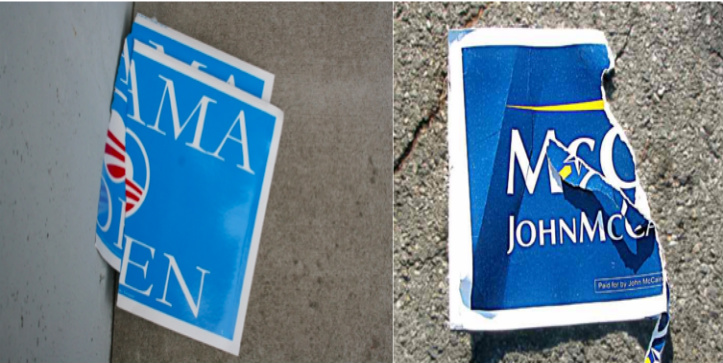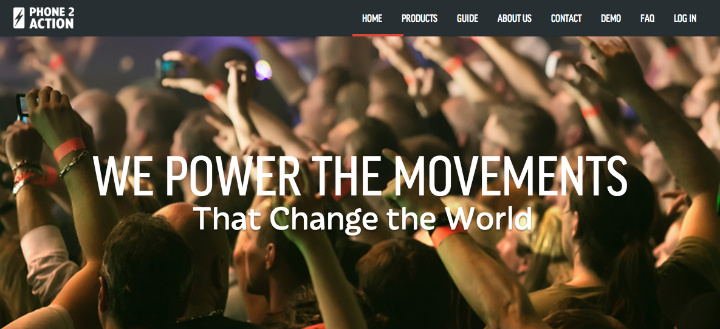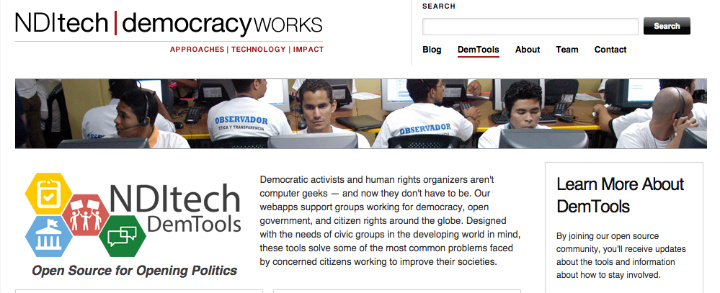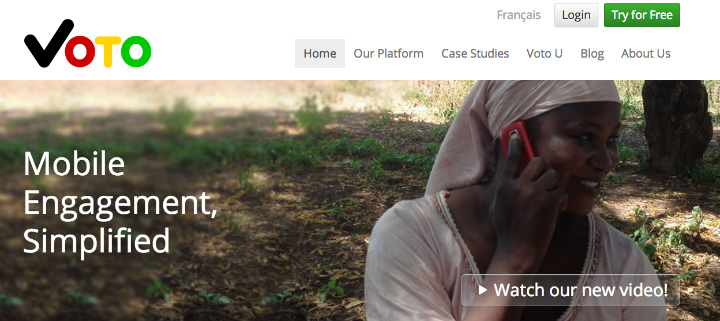The term “Developing World” often conjures the image of broke and broken society. While their potential is equal to those in any developed nation, these communities have a deficit in access to economic opportunity, rule of law, and free assembly. Luckily, technology is rapidly changing the access dilemma by allowing people to organize and build better futures. Though these nations seem fundamentally different to what we know in America, there are underlying desires that every American would understand. Using technology to improve access, they will be able to close the gap on the ‘developed’ world.
Politics and the glorious world of campaigns illustrate these shifting realities. As it turns out, there are several global truths within advocacy work the world over, including this: Yard signs are the devil.
Candidates who may seem sane and reasonable on all other matters become apoplectic when their high school friend Sally Smith on Old Hickory Drive doesn’t have their yard sign prominently placed. The campaign clearly must be in a free fall and all operation will be halted until Sally has her precious yard sign, to which every field hand has, at least once in their life, muttered, “yard signs don’t vote.”
This could be chalked up to American vanity, a superficial culture that cares more about the style of the campaign and less about the substance. My experience, however, is that yard signs are a global pain in the ass.
A Yard Sign, A Yard Sign, My Kingdom for a Yard Sign
I was a long-term elections observer in both the Middle East and the Caucuses – cultures drastically different from both each other and the U.S. In one country, you couldn’t do business unless you shoot vodka at 9 am with a party leader; in the other, you had to drive to the nearest port to find any reasonably priced booze for New Years.
During one such observation mission, I had a meeting with a candidate to discuss rumors surrounding the disappearance of an opponent’s supporter. Talk of the town was that the local sheriff beat the supporter and dropped them in a neighboring country with the explicit threat that ‘your family is next if you return before the election’. When told this, the candidate laughed and said that particular supporter was a bad man and deserved anything that came to him…though of course the candidate knew nothing of this (while literally winking at me).
Fast forward to two days later, at 2 am, and the phone starts ringing…and ringing…and ringing. My groggy translator had just received a call from the aforementioned winking candidate. Apparently, a great injustice had been done to democracy, and we must come to his village quickly to witness this atrocity.
What was this great crime, you ask? Another beating? A burning newspaper room? A trove of pre-filled ballots? In the dark of night, with our Nokia flashlights illuminating the dark, we witness the travesty: a ripped yard sign. The man who had winked at kidnapping was now nervously chain-smoking because his campaign was clearly at risk due to ripped yard signs.
I received many such calls in both regions. Ask a candidate about vote buying? Sure—just part of doing business, no big deal. But a defaced yard sign? ‘What is our country coming to, and how can I go on?’
So, whether you’re with a U.S. politician running for Congress with $3 million in the bank or a 4th string majoritarian candidate running in a new democracy, there is one unifying truth: candidates are illogical and borderline mad when it comes to godforsaken yard signs. Apparently this is a pre-existing condition worldwide. Perhaps the fundamentals of a candidate are, in some peculiar way, hardwired.
Tool Evolution
While many look to developing democracies with patronizing eyes, I see communities ready to use more sophisticated campaign methods. They merely lack many of the tools and much of the infrastructure needed to take them from a semi-democratic state to a full blown society of an engaged populace
Technology is beginning to evolve and become more globally egalitarian, particularly in the political space. For example, the National Democratic Institute (NDI) has released a wonderful new platform called DemTools. DemTools offers a open source platform that gives users the tools to organize supporters, build constituent outreach and analyze data.
The goal for these tools is for them to be a gateway platform to more robust organizing tools used in the U.S. like NationBuilder. The hope is that once people have whetted their appetite for this base use of digital organizing, they will want to grow and evolve at rapid pace to the same systems used in long established democracies.
Along with campaign organizing, several companies, like Voto, are building tools tailored to the mobile market. This push is due to the high global growth in mobile penetration. According to the World Bank, North America has 97% penetration, the Middle East has 96%, Latin America 100%, and at the lower end, Africa has 55%. And even in last place, Africa is (according to Gallup) growing at a median rate of 26%.
Voto, and tools like it, are moving into grassroots advocacy as well, not just top-down organizing. This is a fairly wide distance from top end advocacy tools in the U.S. like Phone2Action, but give the world five years and be amazed by how quickly these gaps close on a global scale.
To be clear, political organizing in developing democracies will not be identical to organizing in the U.S. Nonetheless, these communities are far closer than many wish to give credit – with passion and access comes great change, regardless of the country’s GDP.
My hope is that the world 30 years from now will be powered by an engaged and active global populous, with equal access to opportunity across the globe. That being said, I doubt we’ll ever be able to fix lawn sign obsessed candidates. So, campaign staff of 2044, here’s to you. Cheers!














